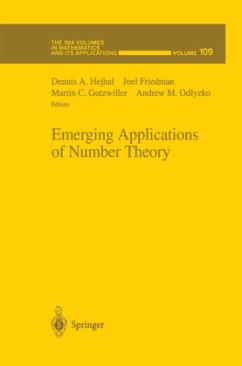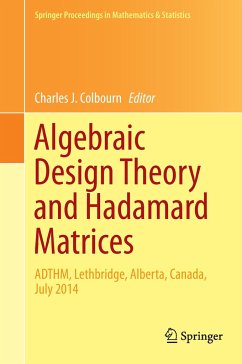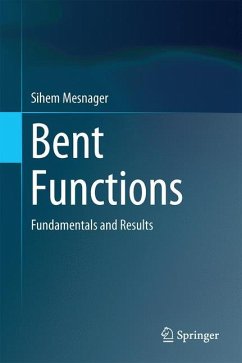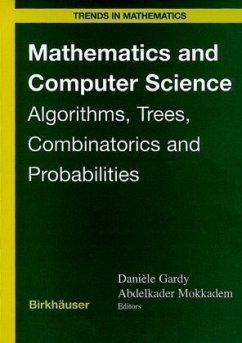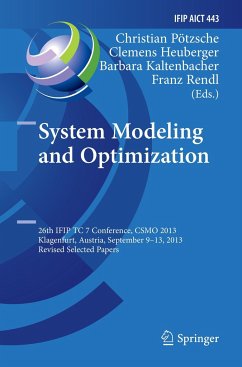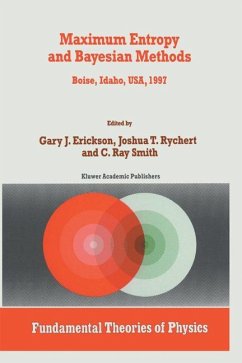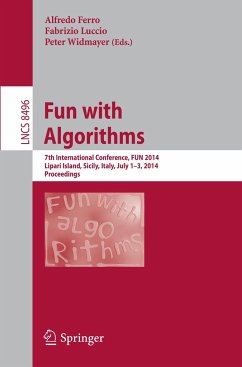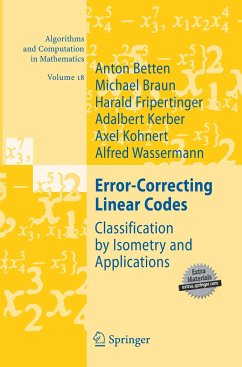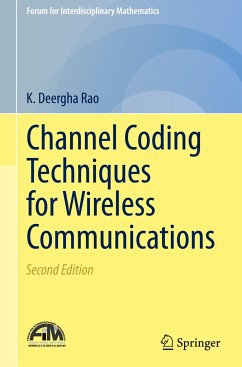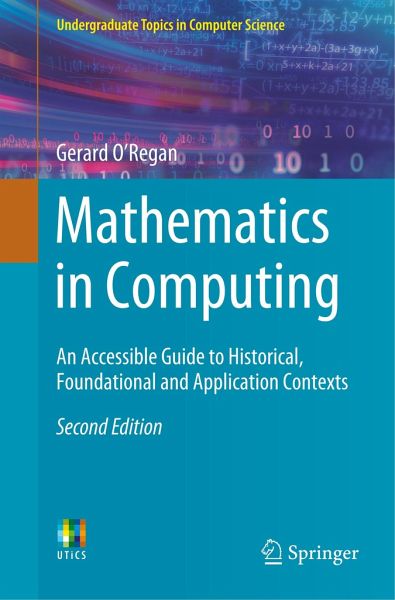
Mathematics in Computing
An Accessible Guide to Historical, Foundational and Application Contexts
Versandkostenfrei!
Versandfertig in 6-10 Tagen
38,99 €
inkl. MwSt.
Weitere Ausgaben:

PAYBACK Punkte
19 °P sammeln!
This illuminating textbook provides a concise review of the core concepts in mathematics essential to computer scientists. Emphasis is placed on the practical computing applications enabled by seemingly abstract mathematical ideas, presented within their historical context. The text spans a broad selection of key topics, ranging from the use of finite field theory to correct code and the role of number theory in cryptography, to the value of graph theory when modelling networks and the importance of formal methods for safety critical systems.This fully updated new edition has been expanded wit...
This illuminating textbook provides a concise review of the core concepts in mathematics essential to computer scientists. Emphasis is placed on the practical computing applications enabled by seemingly abstract mathematical ideas, presented within their historical context. The text spans a broad selection of key topics, ranging from the use of finite field theory to correct code and the role of number theory in cryptography, to the value of graph theory when modelling networks and the importance of formal methods for safety critical systems.
This fully updated new edition has been expanded with a more comprehensive treatment of algorithms, logic, automata theory, model checking, software reliability and dependability, algebra, sequences and series, and mathematical induction.
Topics and features: includes numerous pedagogical features, such as chapter-opening key topics, chapter introductions and summaries, review questions, and a glossary; describes the historicalcontributions of such prominent figures as Leibniz, Babbage, Boole, and von Neumann; introduces the fundamental mathematical concepts of sets, relations and functions, along with the basics of number theory, algebra, algorithms, and matrices; explores arithmetic and geometric sequences and series, mathematical induction and recursion, graph theory, computability and decidability, and automata theory; reviews the core issues of coding theory, language theory, software engineering, and software reliability, as well as formal methods and model checking; covers key topics on logic, from ancient Greek contributions to modern applications in AI, and discusses the nature of mathematical proof and theorem proving; presents a short introduction to probability and statistics, complex numbers and quaternions, and calculus.
This engaging and easy-to-understand book will appeal to students of computer science wishing for an overview of the mathematics used in computing, and to mathematicianscurious about how their subject is applied in the field of computer science. The book will also capture the interest of the motivated general reader.
This fully updated new edition has been expanded with a more comprehensive treatment of algorithms, logic, automata theory, model checking, software reliability and dependability, algebra, sequences and series, and mathematical induction.
Topics and features: includes numerous pedagogical features, such as chapter-opening key topics, chapter introductions and summaries, review questions, and a glossary; describes the historicalcontributions of such prominent figures as Leibniz, Babbage, Boole, and von Neumann; introduces the fundamental mathematical concepts of sets, relations and functions, along with the basics of number theory, algebra, algorithms, and matrices; explores arithmetic and geometric sequences and series, mathematical induction and recursion, graph theory, computability and decidability, and automata theory; reviews the core issues of coding theory, language theory, software engineering, and software reliability, as well as formal methods and model checking; covers key topics on logic, from ancient Greek contributions to modern applications in AI, and discusses the nature of mathematical proof and theorem proving; presents a short introduction to probability and statistics, complex numbers and quaternions, and calculus.
This engaging and easy-to-understand book will appeal to students of computer science wishing for an overview of the mathematics used in computing, and to mathematicianscurious about how their subject is applied in the field of computer science. The book will also capture the interest of the motivated general reader.





